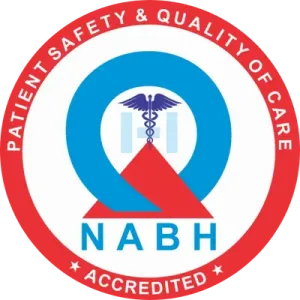Understanding Inguinal Hernia and the Importance of Surgery: A Comprehensive Guide from Mukat Hospital, Chandigarh
Nestled in the vibrant city of Chandigarh, Mukat Hospital stands as a paragon of excellence in medical care. Among the myriad specialized services offered, inguinal hernia surgery is particularly noteworthy. This blog aims to elucidate the nature of inguinal hernias, the necessity of surgical intervention, and why Mukat Hospital is the preferred choice for this procedure.
What is an Inguinal Hernia?

Symptoms and Diagnosis
- A heavy or dragging sensation in the groin.
- Weakness or pressure in the groin.
- Pain and swelling around the testicles if the protruding intestine descends into the scrotum.
- Pain or discomfort in the groin, particularly when bending, coughing, or lifting.
Why Surgery is Necessary
Open Hernia Repair
Laparoscopic Hernia Repair
Benefits of Laparoscopic Surgery
- Reduced Pain: Smaller incisions result in less post-operative pain.
- Faster Recovery: Patients often resume normal activities more quickly.
- Lower Infection Risk: Smaller incisions reduce the risk of infection.
- Minimal Scarring: The small incisions leave minimal scars.
Why Choose Mukat Hospital for Inguinal Hernia Surgery?
2. Advanced Technology: The hospital is equipped with the latest medical technology, including advanced laparoscopic equipment. This allows for precise and minimally invasive surgeries, leading to better outcomes and faster recoveries.
3. Comprehensive Care: At Mukat Hospital, patients receive comprehensive care throughout their surgical journey. From pre-operative assessments to post-operative follow-ups, the medical team ensures that each patient’s needs are met with personalized attention and care.
4. Patient-Centric Approach: Mukat Hospital places a strong emphasis on patient comfort and satisfaction. The staff is dedicated to providing a supportive and compassionate environment, helping to ease the anxiety that often accompanies surgery.
5. Hygiene and Safety: The hospital maintains stringent hygiene and safety protocols to minimize the risk of infections and complications. This commitment to safety ensures that patients can undergo surgery with confidence.
Preparing for Surgery
Recovery and Aftercare
- Avoid strenuous activities and heavy lifting for a few weeks.
- Follow a balanced diet to prevent constipation.
- Attend follow-up appointments to monitor healing and address any concerns.











